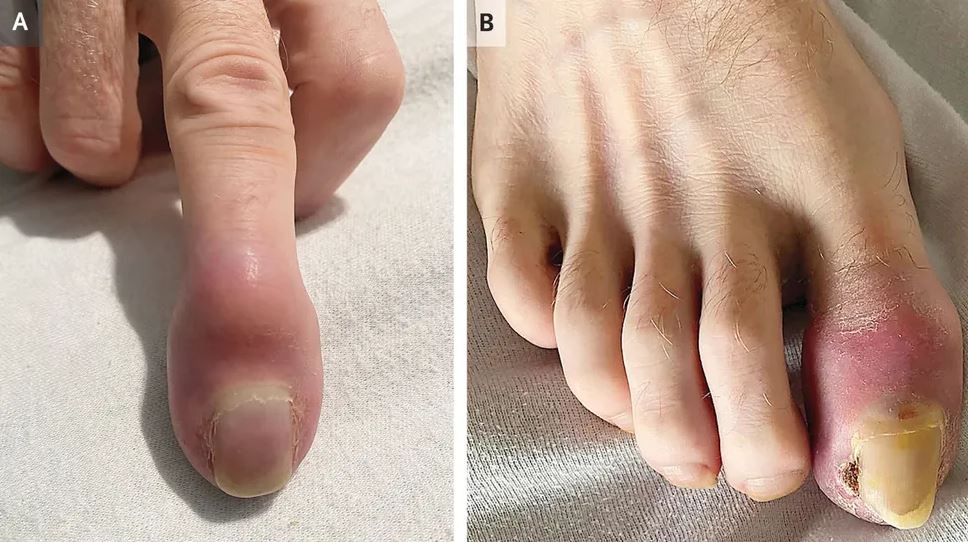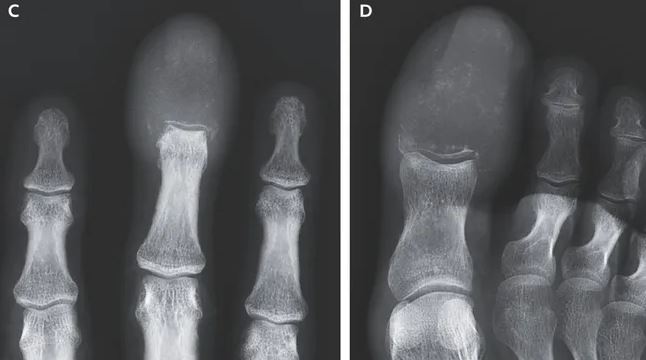
In a rare medical case, a man's seemingly innocuous swelling in his fingers and toes unveiled a much graver issue - cancer had completely replaced the bones in his digits. This revelation, highlighted in a recent publication in The New England Journal of Medicine, sheds light on the intricate nature of acrometastasis, a condition where cancerous tumours spread to the bones of the hands or feet. This singular case not only underscores the challenges of diagnosing such rare occurrences but also raises broader questions about cancer metastasis and its impact on peripheral skeletal structures.
Examining Acrometastasis: Unravelling the Intricacies of Cancer Spread
Acrometastasis, accounting for a minute fraction of all metastatic cancers, presents a unique diagnostic dilemma due to its atypical manifestation in the extremities, a departure from the more common sites of bone marrow concentration. This peculiarity, as evidenced in the case study, underscores the complexities of cancer's migratory behaviour and the challenges in early detection and treatment initiation. Moreover, the disproportionately low occurrence of acrometastases in fingers and toes due to diminished blood flow poses critical questions about the interplay between cancer cells and anatomical constraints.
The Wider Context: Gender Disparities and Survival Rates
Research indicates that acrometastases predominantly affect males and are often associated with advanced stages of primary cancers, leading to a bleak prognosis and limited treatment options. This gendered dimension in cancer metastasis points towards potential biological and behavioural variables that warrant further exploration. Furthermore, the poor survival rates linked to acrometastasis underscore the urgent need for innovative palliative care strategies that prioritize pain management and functional preservation in affected patients, as seen in the palliative radiotherapy administered to the individual in question.
Global Perspectives and Medical Implications
While acrometastasis remains a rare phenomenon, its implications extend beyond individual cases, offering valuable insights into the systemic complexities of cancer progression and treatment. By delving into the nuances of metastatic patterns and survival disparities, this unique medical occurrence prompts a reevaluation of existing diagnostic protocols and therapeutic interventions in oncology. Moreover, the global prevalence of acrometastases necessitates a collaborative approach towards research and clinical practices to enhance our understanding of this intricate facet of cancer biology.

In conclusion, the intricate case of acrometastasis serves as a poignant reminder of the multifaceted nature of cancer progression and the imperative of holistic, patient-centric care in mitigating its devastating effects. As we navigate the complexities of rare medical conditions like acrometastasis, we are compelled to reexamine existing healthcare paradigms and cultivate a deeper appreciation for the intricacies of the human body's response to disease. In doing so, we move closer towards a more nuanced understanding of cancer and its myriad manifestations, paving the way for enhanced diagnostic precision and targeted therapeutic interventions.
Did you miss our previous article...
https://trendinginthenews.com/cancer/innovative-breathalyser-technology-revolutionizes-blood-cancer-detection






